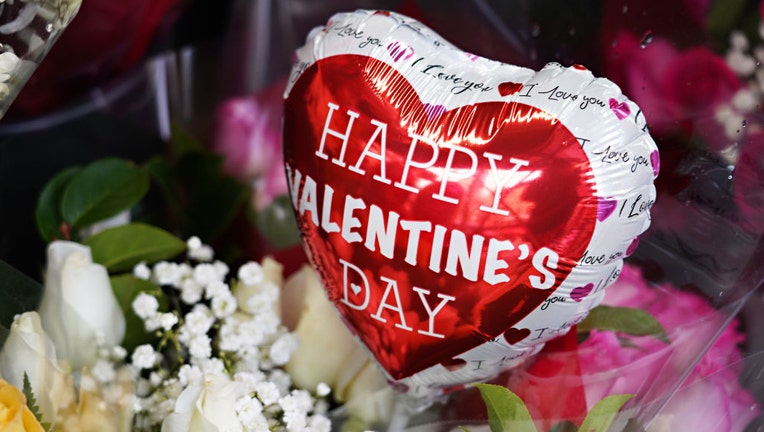Here are the top Valentine's Day scams reported to the BBB

FILE-Valentine's Day balloons and flowers are sold outside a store in New York City. (Photo by Cindy Ord/Getty Images)
Valentine’s Day is coming up and as consumers start shopping for gifts for that special someone, the Better Business Bureau (BBB) is warning the public to beware of scams during the holiday.
These are the top scams the agency says you should watch out for.
Romance scams
Romance scammers tend to target people who have experienced a recent breakup or other life obstacle. The BBB says these individuals will exploit the heartbreak of the victim to build a connection and gain sympathy, and the scammer then manipulates the person with a sad story.
According to the BBB, three red flags to be mindful of when this happens is you should never meet the individual in person, the scammer will ask for money, and the relationship is moving too fast.
RELATED: Dating or being defrauded? How romance scams target hopeless romantics
Fake florist scams
Flowers are one of the go-to gifts for Valentine’s Day, but the BBB said its received many reports of consumers duped after thinking they were ordering flowers online from a florist and either didn’t get them or were disappointed by the floral arrangement.
The three red flags for this scam are the business has no reviews or bad reviews, shoppers can’t find a return policy or satisfaction guarantee, and the deal is what the agency calls "too good to be true," the BBB website explains.
RELATED: Romance scammers: Record losses reported by dating app users
Imposter websites
One of the main types of scams occurs on imposter websites. The BBB notes that these sites include fake online dating platforms and scammers selling counterfeit jewelry.
These individuals are crafty at lifting official photos, sales promotions, and logos from websites of a well-known jewelry company.
Once they have these elements, scammers can build a fake website that looks legitimate. These types of tactics are also utilized for fake online dating sites to steal personal data and credit card information.
According to the BBB, consumers should look out for Valentine’s Day items sold on these sites at cheap prices, a seller requesting that you pay with cash transfer apps or cryptocurrency, and you can't contact a customer service department.
Wrong number scams
Another common practice during the holiday are wrong number scams. This occurs when a scammer sends a text message to a person to bait them into a conversation.
The longer you talk to the scammer, this gives them the chance to obtain personal information by having you sign up for an adult site.
The BBB says red flags with this scam are constant messages, the sender directs you to sign up for a website, and the scammer attempts to get your personal information.
What should you do if you encounter a scam?
If you or someone you know is the victim of a suspected scam, the BBB urges you to end contact with the scammer by blocking their accounts and phone number. Once this step is done, report the incident to BBB.org/ScamTracker.
This story was reported from Washington, D.C.

